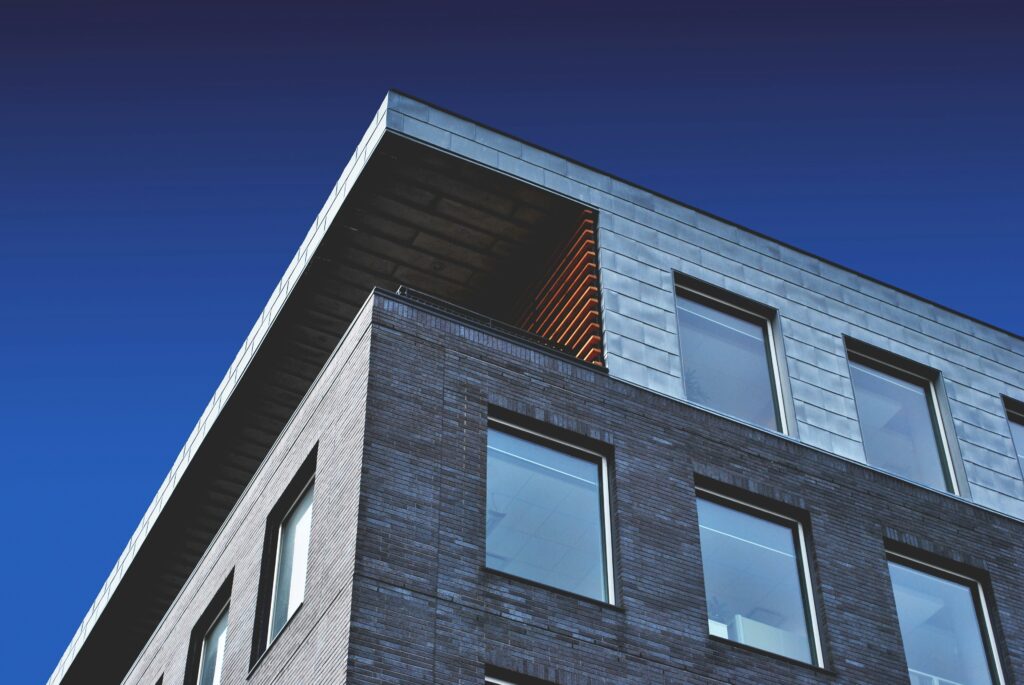Mixed-Use Properties Explained
2 February 2024
Whether you are a property enthusiast, a potential investor, or intrigued by mixed-use properties, you have come to the right place. This blog will delve into the intricacies of mixed-use properties and how they blur the lines between commercial and residential spaces, redefining urban landscapes.
- What is a Mixed-Use Property?
- Benefits of Mixed-Use Properties for Investors
- What Mortgage Do I Need for a Mixed-Use Property?
- Tax and Mixed-Use Properties
- Managing your Mixed-Use Property
What is a Mixed-Use Property?
According to HMRC, a mixed-use property can be defined as a property with residential and non-residential elements. A standard mixed-use property is configured vertically, consisting of commercial units on the ground floor and domestic living spaces on a higher floor. There are many variations of mixed-use properties, making them very desirable for both tenants and investors.
Can you Live in a Mixed-Use Property?
Due to the residential element of mixed-use properties, it is suitable for a landlord or a tenant to live here.
Non-Residential Units in Mixed-Use Properties
These buildings can have many purposes, meaning they can comprise a combination of components such as:
- Retail Shops
- An Office Complex
- Doctor’s Surgery
- Cafes or Restaurants
- Gyms
Generally speaking, these properties have a higher potential income than solely residential properties – making them a significant investment.
Benefits of Mixed-Use Properties for Investors
Income Security
Mixed-use properties tend to offer an investor more stability and security than a purely residential property. Investors receive income from residential and non-residential tenants by renting out housing and commercial units. If one unit within the property became empty for a period, the investor would still receive an income from the other spaces.
High Visibility
Most mixed-use properties are located in city centres and usually receive high foot traffic. Commercial businesses within a mixed-use property have the potential to be very successful; they will be used not only by the tenant of the building but also by many passer-byers. Investors can, therefore, be confident that they will receive a steady income from at least the non-residential unit.
Increased Demand
The residential unit will likely be highly sought after by tenants. Central locations include amenities such as gyms, shops, restaurants, job opportunities, and increased transport options. Investors will not have to worry much about filling such a desirable property; income is, therefore, likely to be constant. Landlords can pick ideal tenants who provide the most financial security.
What Mortgage Do I Need for a Mixed-Use Property?
An investor should apply for a semi-commercial mortgage to buy a mixed-use property where at least 40% of the space is used for commercial purposes. This mortgage is specifically designed for properties with both residential and commercial elements. For a semi-commercial mortgage, you can lend up to 75% loan-to-value (LTV); this means you must put down at least a 25% deposit. The deposit percentage will vary depending on the risk to the lender and whether the owner will occupy the property or it is an investment property.
Advantages of a Semi-Commercial Mortgage
- Semi-commercial mortgage rates are lower than commercial mortgage rates
- It provides the opportunity for one tenant to occupy both the residential and commercial units
- Investors can generate income from two streams rather than the one associated with residential buy-to-let mortgages.
Disadvantages of a Semi-Commercial Mortgage
- Interest rate rates tend to be higher for a semi-commercial mortgage in comparison to residential buy-to-let mortgages
- Higher deposits are required compared to a traditional residential mortgage
- Acquiring a semi-commercial mortgage can be difficult. You may benefit from the help of a mortgage broker; you must have a good credit score, and a lot of complex paperwork is involved.
Tax and Mixed-Use Properties
Stamp Duty Land Tax and Mixed-Use Properties
Stamp Duty Land Tax (SDTL) is payable on mixed-use properties. The SDTL is calculated using commercial rates, which have a higher 0% rate threshold of £150,000 compared to a residential 0% rate threshold of £125,000. For the portion from £150,001 to £250,000, the SDTL rate is 2%, and for the amount above £250,000, the SDLT rate is 5%. To calculate the SDTL that you will pay, use this SDLT calculator.
What is Mixed-Use Property Council Tax?
Council tax rates for mixed-use properties are based on the nature of the property and local regulations. For accurate council tax calculations in your area, contact your local council.
Mixed-Use Properties FAQs
Can I get a Residential Mortgage on a Mixed-Use Property
In most cases, you can only get a semi-commercial mortgage for your mixed-use property. However, some lenders may assess your case and be willing to offer a traditional residential mortgage for mixed-use properties. This type of mortgage would only be possible if the commercial unit within the property accounted for less than 40% of the overall space.
How is a Mixed-Use Property Valued?
One way in which agents will evaluate a mixed-use property is through a market approach. This approach compares your property to a comparable mixed-use property with similar characteristics in size, condition, location, and income potential.
Can I Convert a Mixed-Use Property into a Residential Property
It is possible for Class E properties to be converted into domestic properties – providing you have received planning permission from your local planning authority.
Managing your Mixed-Use Property
If you are considering investing in a mixed-use property but need help managing it to make it a success, then LevelUp could be the answer you are looking for. LevelUp provides property management services for corporate portfolios. We are a leading property management company with a proven track record and years of industry experience. LevelUp can help you expertly manage your mixed-use properties to enhance rental income and increase property value.
Related Articles




